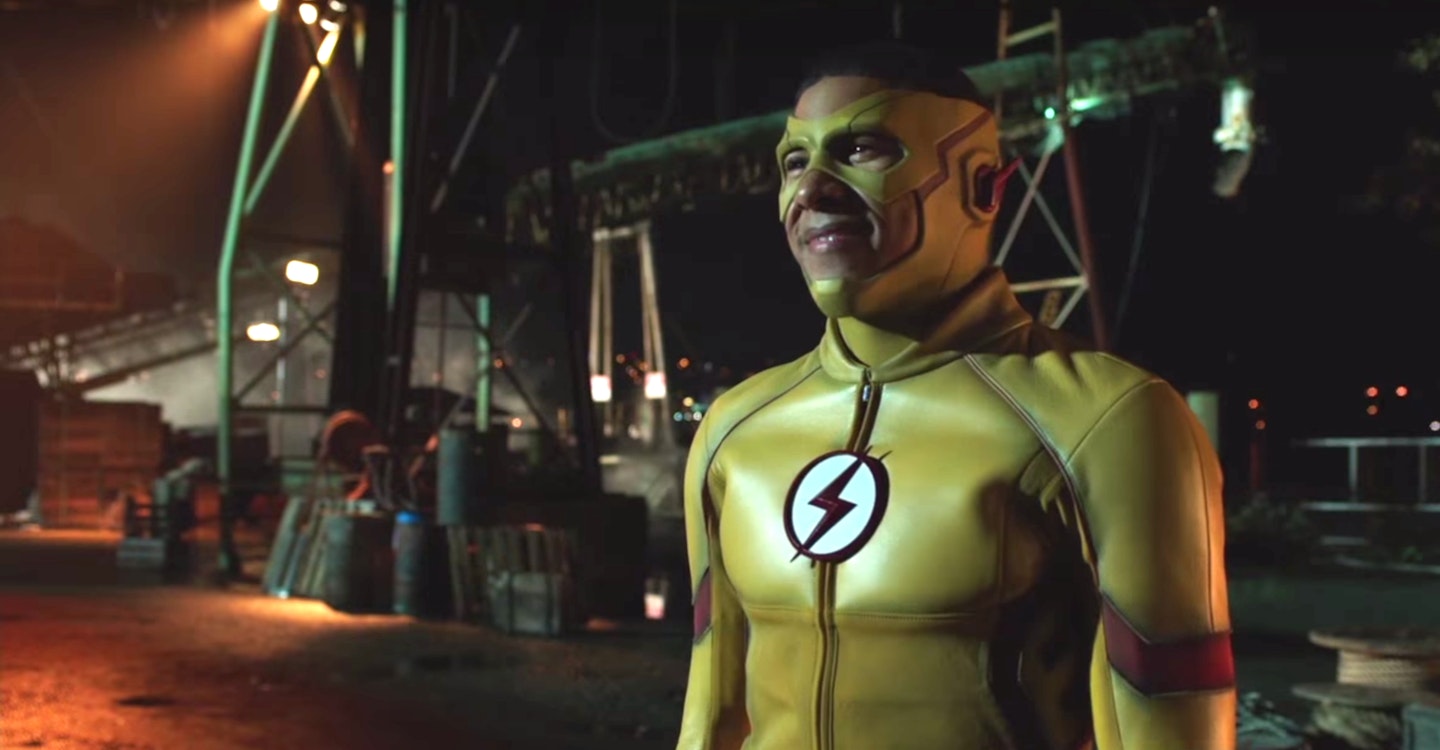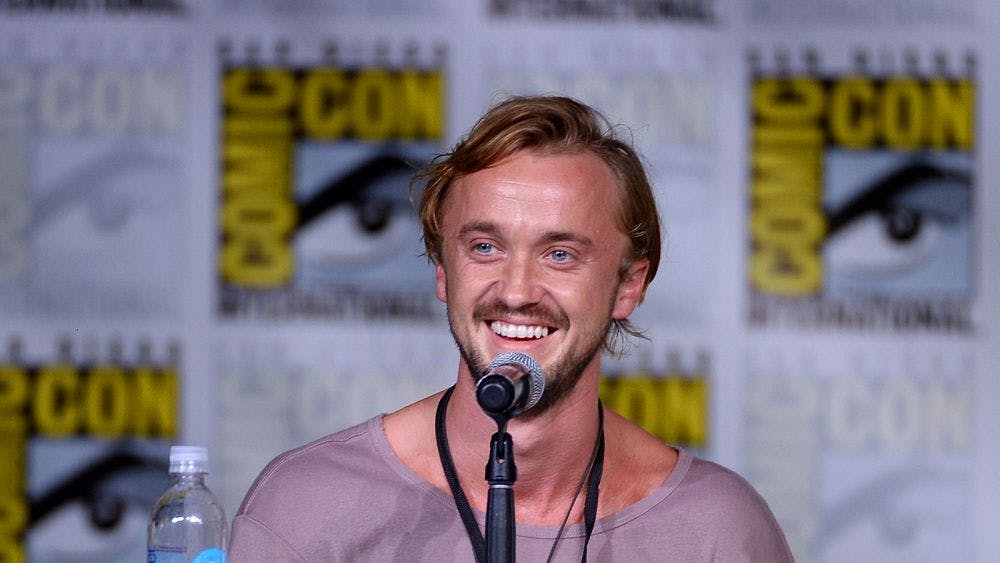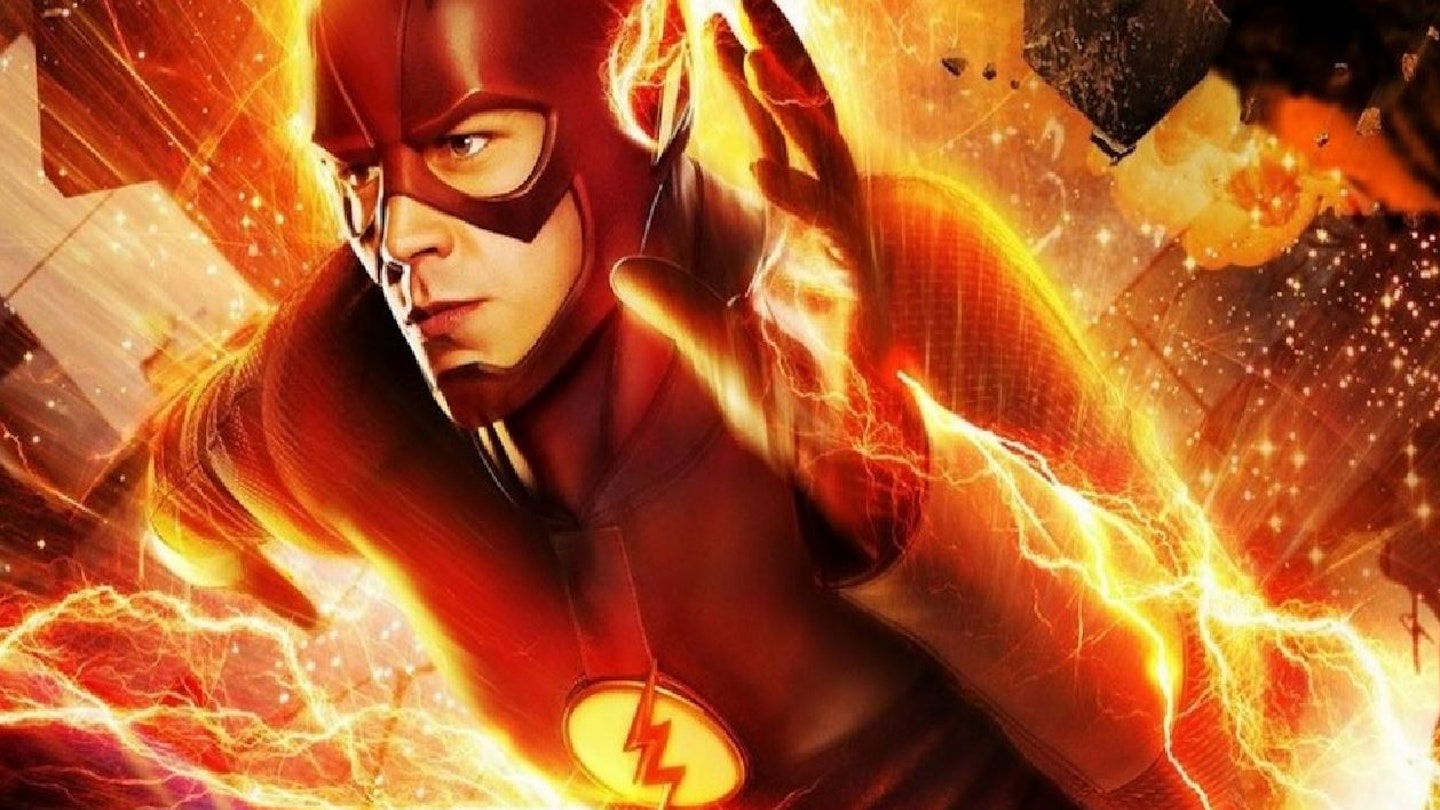In the annals of DC Comics, the "Flashpoint" storyline (in which Barry Allen transverses time to save the life of his mother, murdered before his eyes when he was a child by the Reverse-Flash) has universe-wide effects and triggered the company's New 52. The repercussions of the same event are apparently just as significant on the TV version of The Flash, as will be revealed during season three as well as the superhero series Arrow, Supergirl and DC's Legends Of Tomorrow.
Taking time from what seems to be an insane year of storytelling (beyond "Flashpoint" there is the four-part crossover with the other series, as well as a musical crossover with Supergirl), executive producer Aaron Helbing reflects on what went into the decision to take on what he calls a "herculean" task.
It would seem that starting things off with the "Flashpont" story is creatively exciting, but also, in some ways, a major pain in the ass in that you're screwing up the universe and having to put it back together again.
As writers we try to tell the best stories we can. Sometimes that involves us painting ourselves into a corner and when we do that, that's where great ideas come from. We kind of relish the challenge, to be honest. And I definitely don't think we hold back on anything. Everything is on the table at all times. Every character, every storyline. The beauty of The Flash is we can do things like "Flashpoint." We can have Barry travel back in time and make interesting decisions. When you have a show and a character with those abilities, basically anything is possible. When we introduced the multiverse, the sandbox got even bigger and there were more interesting things in there that we got to play with. And the actors have a lot of fun at the same time. When we did our Earth-2, Iris was a little different, Joe was a little different, a lot of the characters were different. Then when we do a "Flashpoint" storyline, there's a distinction with a difference, again, with the characters. That kind of revitalizes a lot of people. As storytellers we get to continually go into these interesting worlds with these interesting characters who are similar yet slightly different, and it just makes the storytelling that much more interesting and exciting, I think.

In some ways it's almost like an ability to reboot the show whenever you feel like.
Exactly. And we're really excited this season, because we get to introduce Kid Flash. We introduced Wally West last season, and there would be a tendency on some shows to make him Kid Flash right away. What I love about what we get to do here, and what [executive producers] Greg Berlanti and Andrew Kreisberg basically always wants to do, is get to know the character first. What's his or her emotional journey? We know we're going to get there at some point, but we need to get to know who these characters are first and let the audience discover the ins and outs of the characters. Then we get to bring in someone like Kid Flash.
Last year we gradually got to see Wally move to the point where he wanted to help people, so it's interesting now to see him get that opportunity to do so as a speedster.
Seems to be a West family gene that provides this innate desire to help people, put yourself before others and do good. Wally had a difficult childhood, his father wasn't around and his mother was dying, but of course he still was doing the right thing. He was just doing it in not so savory conditions. I mean, when we first meet him and he's drag racing, you think, "Oh, this kid is just a troublemaker." In reality, the reason he's doing it is from an emotional place of, "I have to take care of my mom." So, that's something that we're proud of and we're really excited that we got to tell that story. Now, as he evolves into Kid Flash, we get to dig even deeper into his character and his innate heroism.
In working on something like "Flashpoint," is there a way to describe what the writers' room is like?
It's not a small task. Greg and Andrew basically know exactly where they want the season to go. We get together and take a few weeks every year before the season begins to figure out, okay, what do we want to do? What is Barry's emotional journey? Before we get into the action, the pieces and all the villains and everything, what's Barry's journey? What's Iris' journey? What's Joe's journey? What's every single character's journey? Where do we want to take them? When you have a ton of writers with passion for the show and passion for these characters, anything is possible. Everything's always on the table and it becomes kind of like a Herculean effort to slowly figure out, "Okay, we can't do that yet. We've got to take that away." We're basically taking a gigantic piece of clay and trying to sculpt the best storyline and the best emotional journeys for each character.
"Flashpoint" doesn't last the entire season, does it?
No, but the impact and the various decisions are going to reverberate throughout the entire season. It's the reason that villains like Dr. Alchemy and Savitar are a part of the show. We liken it to when you have a perfect, pristine vase that you break. Even if you put it back together, there are always going to be those cracks. It's never, ever going to be exactly how it was. For example, when we meet The Rival in episode one, he'll have an impact in episode two. This guy, Edward Clariss, remembers everything that happened in "Flashpoint." All of the pieces that we set up in "Flashpoint" are going to play out throughout the entire season. It's going to be something that Barry and his team are going to be grappling with and struggling against and trying to overcome.
Does it ever reach a point where people want to say to Barry, "You know, dude, every time we tell you not to do something and you do it anyway, it goes horribly awry?" That really seems to be an ongoing problem.
We approach these characters as living, breathing people who have emotions and their own opinions and who makes mistakes. Yes, eventually there will be a point where people will say, "Barry, this affected me and we need to talk about this." He isn't given a get out of jail free card.
How much of a concern is there over the other superhero shows being affected by "Flashpoint"? Obviously there is producer overlap to oversee these things, but the assumption is that there will be an impact on Arrow, Supergirl and Legends Of Tomorrow.
Yeah, definitely. Arrow for sure is impacted. Diggle is significantly impacted in his life personally. The beauty is, since Greg and Andrew are producers on all four shows, and we deal with [executive producers] Marc Guggenheim and Phil Klemmer and Wendy Mericle, we sit down and we talk about it an are pretty much on the same page. I think something special that you don't get to experience on a lot of other shows is how interconnected they all are. To me, as a fan of all of them, that gets me really excited. It kind of holds true to, in the comic book universe, when you're going to do something like "Blackest Night" that affects all of these characters and all these different storylines who are in their own stories, but they begin to overlap. It's the same thing with these shows.
And as if that wasn't enough, then you have to do the big four-show crossover.
It's the best problem to have, especially now with Supergirl on the CW. It's a challenge, but it's one of those challenges that you are kind of blessed to have. How often do you get to tell these stories across three-to-four nights of television? That's a very rare thing and I think we all are just kind of excited and honored that we get to do that, and that people really want to see all of the shows and how they're interconnected.
And then you're doing a two-part musical crossover between The Flash and Supergirl.
I don't even want to think about it, although because we're doing the crossovers, it's kind of like we're laying the groundwork for that. Obviously it's a challenge, but I think it's a challenge worth pursuing. They're always worth pursuing. That's the thing, you have to continue to challenge yourself. That's what we try to do on every single episode of The Flash and I know they try to do on Arrow and Supergirl and Legends Of Tomorrow. That's the beauty of just being able to tell these stories. We want to swing for the fences every time.
The Flash airs on the CW in America and Sky1 in the UK
](http://www.empireonline.com/movies/features/flash-9-questions-tom-felton/flash-9-questions-tom-felton?auto=format&w=1440&q=80)
